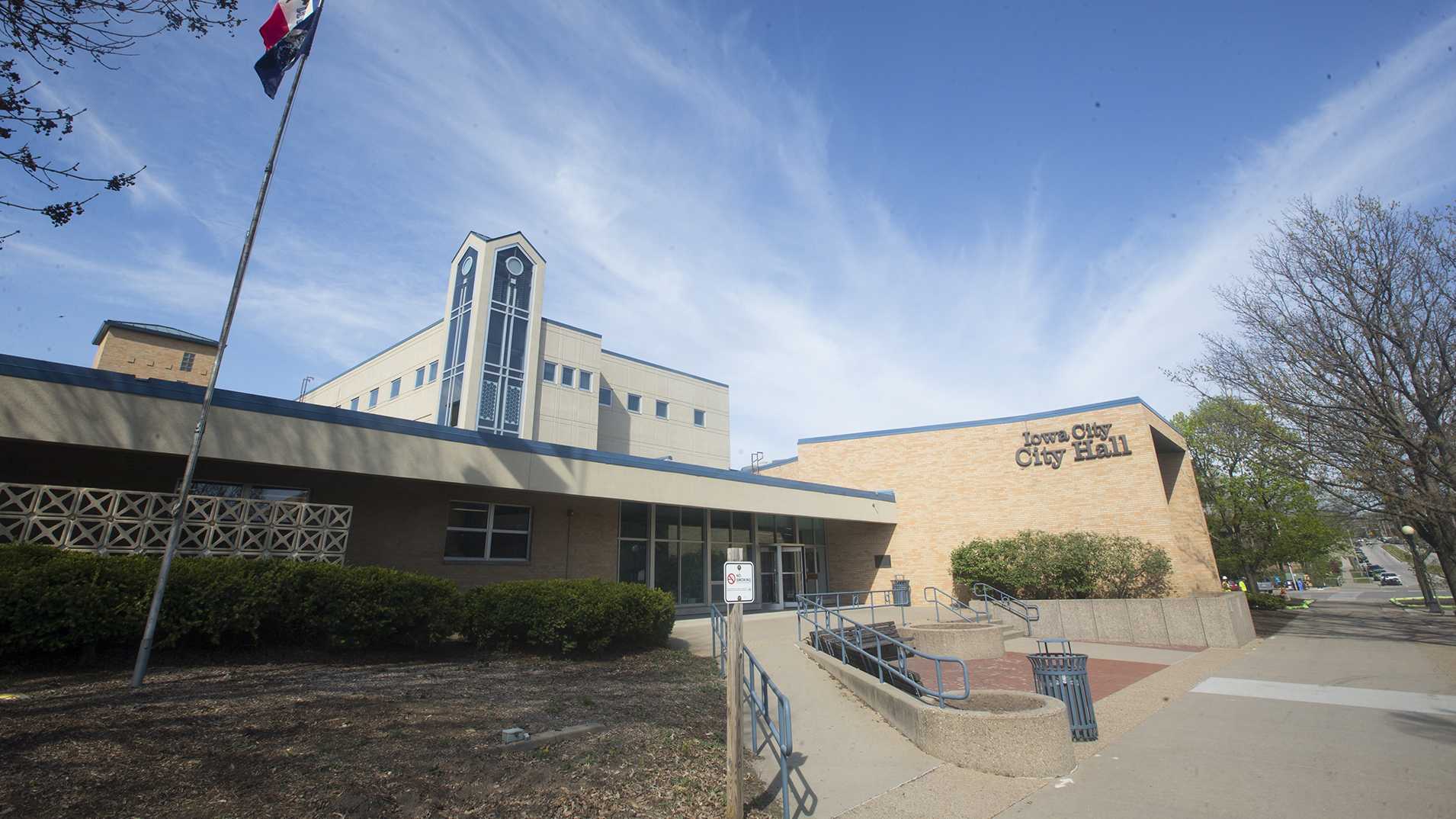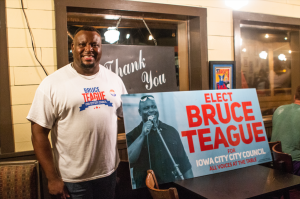Weigel: How the Iowa City City Council should have handled the special election
The Iowa City City Council recently decided to hold a special election to fill a vacated seat. The Council should have tacked the race onto November’s general election. Doing so would save money and be more democratic.
During City Council election forum, candidates shared their vision for Iowa City at the Mill.
September 12, 2018
While it may not “officially” be fall yet, with the passing of Labor Day — a day known to mark the “unofficial” end of summer and beginning of fall — it’s time to embrace fall and all that comes with it. That means it’s time to set your fantasy football lineup, grab a pumpkin-spiced latte, and start layering your apparel to prepare for the temperate temperatures and crisp breezes that are so characteristic of Midwestern fall weather.
On a more serious note, fall also means that election season is upon us. If you’re a political junkie like me, then you may already know that there are a lot of important elections approaching. In Iowa, there is a heated race for governor and two competitive House races. Yet, on a more local and proximate level, you may be surprised to learn that elections have already begun.
On, Sept. 4, Iowa City held a special primary election to winnow down the field of five candidates to two for the Oct. 2 special election to replace former City Councilor Kingsley Botchway.
If you’re thinking, “What, there was an election last week and there’s another one next month? I thought elections were only on the first Tuesday of November,” then you’re somewhat right. The first Tuesday (after the first Monday) in November is always Election Day in the U.S.
The caveat is that Botchway resigned in late July, prompting the City Council to find someone to take over the remaining three years of his four-year term. Faced with two options — hold a special election or appoint someone — the remaining six councilors unanimously decided to go the special-election route. Their reasoning was that holding a special election is more democratic than appointing someone to public office. The councilors also said that they wanted to ensure Botchway’s successor wasn’t marked as “illegitimate” by appointing someone undemocratically.
Sounds like a great idea, right? Special election in the name of democracy. Then again, exit-polling data suggest that the decision to hold a special election may have been a bit nearsighted. According to the Johnson County Auditor’s Office, fewer than 9 percent of Iowa City’s registered voters turned out for the special primary election. So, while democracy really sounds great in theory, in all actuality when fewer than 10 percent of the registered voters turn out, can an election really be called democratic?
Therefore, I think it would be wise for the City Council to think pragmatically about future special elections. If the councilors had decided to appoint someone to the vacant seat, they could have saved a sizable amount of money — some of which comes from local taxes. The Auditor’s Office estimates that it costs $30,000 to conduct a special election, and because there are two elections for Botchway’s seat (the primary and general on Oct. 2), that comes out to roughly $60,000 plus the hassle of administering an election.
Some may be asking: why couldn’t the city councilors just tack the special election onto the ongoing general election process? Well, current city code prevents city council from doing so. I believe city council should change this code so that in the future a special election could have the ability to be tacked onto a general election. That way, the process of filling the seat would still be democratic, would save money, and would avoid all the hassle that comes along with conducting an election. What’s more, I’m willing to bet that turnout will be significantly higher for November’s predetermined election than the measly 9 percent who turned out for last week’s primary.
This all leads me to wonder: Why in the world did the city councilors think it would be a good idea to hold a special election? It certainly appears as though other options would have been far more pragmatic.





